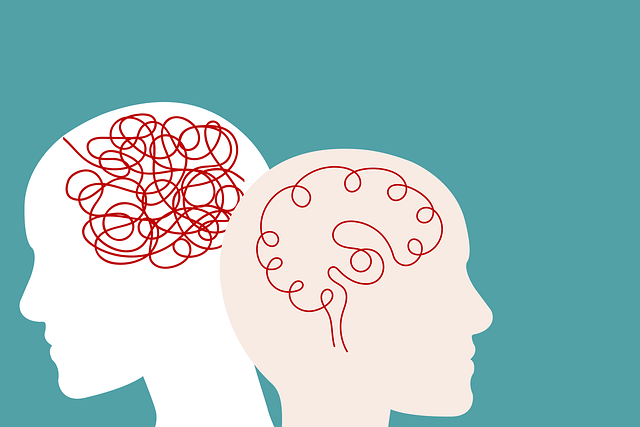Westminster Adolescent and Teen Therapy is a pioneering initiative in mental health advocacy, focusing on raising awareness, promoting understanding, and combating stigma for teens. Through tailored therapy sessions, cultural sensitivity, and innovative approaches like mindfulness meditation, the program equips adolescents with coping mechanisms and resilience. By empowering youth to advocate for their well-being and fostering open conversations about mental health, Westminster Adolescent and Teen Therapy creates a supportive environment where teens feel comfortable seeking professional guidance without shame or isolation.
Mental health advocacy is a powerful tool for ensuring adolescents and teens receive the support they need. This article delves into the significance of mental health awareness, highlighting why it’s crucial for young individuals. We explore Westminster Adolescent and Teen Therapy as a pioneering program, showcasing effective strategies to empower youth and advocate for their well-being. By understanding these initiatives, we can foster healthier communities and brighter futures for our youth.
- Understanding Mental Health Advocacy: Why It Matters for Adolescents and Teens
- Westminster Adolescent and Teen Therapy: A Model Program for Mental Health Advocacy
- Strategies and Programs to Empower Youth and Advocate for Their Mental Well-being
Understanding Mental Health Advocacy: Why It Matters for Adolescents and Teens

Mental health advocacy is a powerful tool for creating positive change in the lives of adolescents and teens. It involves raising awareness, promoting understanding, and fighting stigma associated with mental health issues that often affect this age group. At Westminster Adolescent and Teen Therapy, we believe that advocating for mental well-being is crucial to ensuring young people receive the support they need. Mental health problems like anxiety, depression, and stress are common among teens, yet many struggle to speak out due to fear of judgment or a lack of awareness about available resources.
Advocacy initiatives aim to educate both youth and adults about recognizing signs of mental distress and encouraging open conversations. By teaching mindfulness meditation and coping skills development, these programs empower adolescents to manage their emotional well-being. Moreover, reducing the stigma around seeking help for anxiety relief allows teens to access necessary support without feeling ashamed or isolated. Through advocacy, we can foster a more supportive environment where adolescents feel comfortable discussing their mental health and seeking professional guidance when needed.
Westminster Adolescent and Teen Therapy: A Model Program for Mental Health Advocacy

Westminster Adolescent and Teen Therapy stands as a shining example of effective mental health advocacy initiatives. This program has successfully reached out to young individuals, offering them crucial support for their mental well-being. By focusing on adolescents and teens, they address a vital period in human development where social skills training can have a profound impact. The therapy sessions cater to the unique needs of each individual, ensuring cultural sensitivity in mental healthcare practice, which is essential for building trust and fostering open communication.
Through innovative approaches, Westminster Adolescent and Teen Therapy promotes Mental Health Awareness, helping young people navigate their emotions and challenges. Their model program not only targets immediate issues but also equips teens with lifelong coping mechanisms. This holistic strategy has proven to be transformative, offering a safe space where adolescents can explore their mental health concerns and emerge with enhanced resilience and self-awareness.
Strategies and Programs to Empower Youth and Advocate for Their Mental Well-being

Empowering youth to advocate for their mental well-being is a crucial aspect of any comprehensive mental health advocacy initiative. Programs such as Westminster Adolescent and Teen Therapy offer strategies that focus on building resilience, teaching coping skills, and fostering open communication about mental health issues. These interventions are designed to equip young people with the knowledge and confidence necessary to recognize signs of distress in themselves and others, seek appropriate support, and promote positive mental wellness.
Incorporating compassion cultivation practices has become an integral part of these efforts. Research suggests that teaching youth mindfulness, empathy, and self-compassion can significantly enhance their emotional regulation skills. Moreover, regular risk assessment for mental health professionals ensures that any emerging issues are identified early, allowing for timely interventions and support. By combining evidence-based therapies with compassionate approaches, initiatives like Westminster Adolescent and Teen Therapy strive to create a supportive environment where youth feel empowered to take charge of their mental health.
Mental health advocacy is a vital component in ensuring the well-being of adolescents and teens. As highlighted by Westminster Adolescent and Teen Therapy, a comprehensive approach that involves both programs and strategies can significantly empower young individuals to speak up for their mental health. By implementing these initiatives, we can create a supportive environment where teens feel comfortable discussing their struggles and seeking help early on, ultimately leading to improved mental health outcomes.











